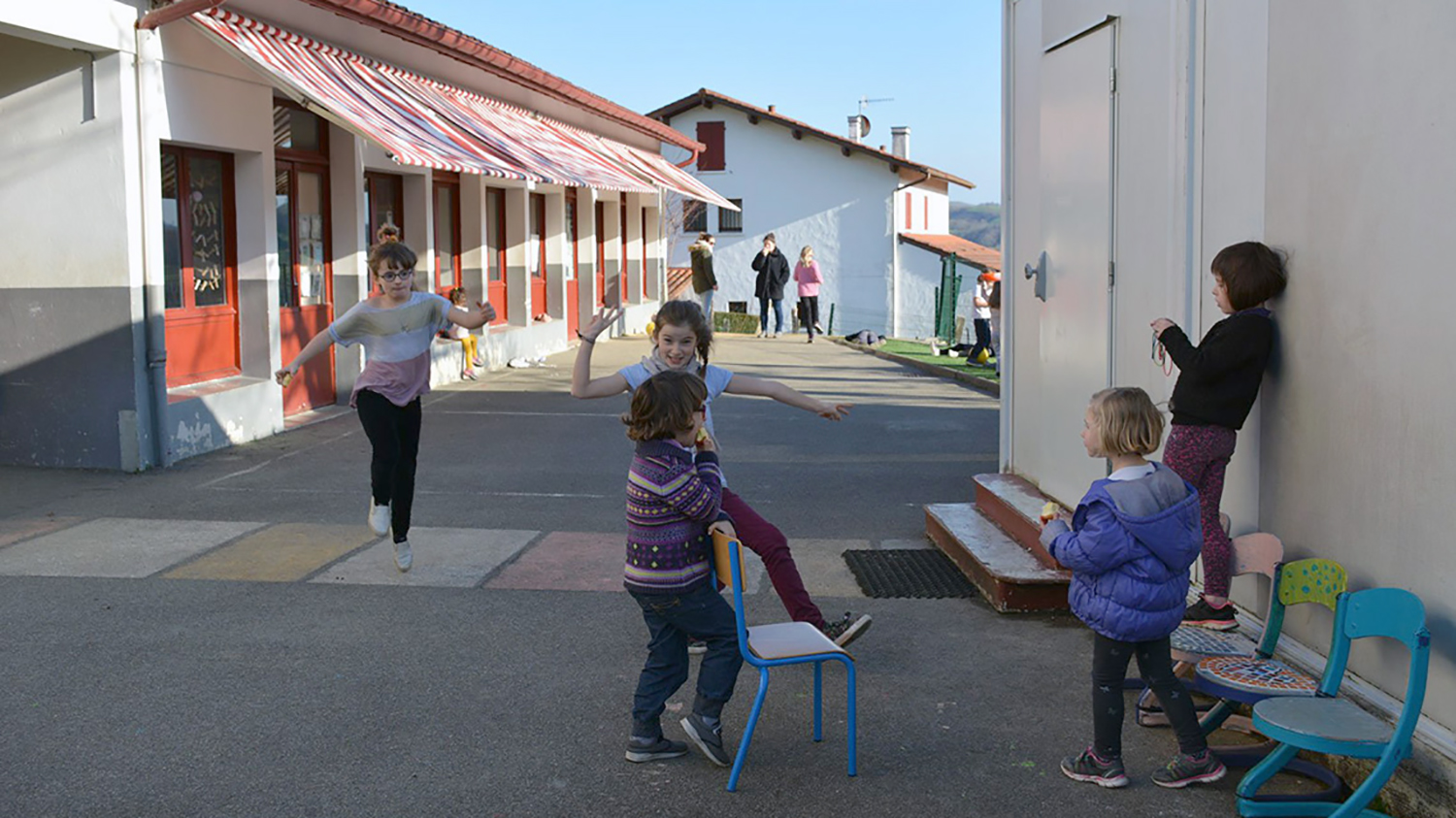Euskera grows year after year in the Rioja Alavesa
- Five people from Rioja Alavesa have gathered around the table to discuss Euskera. From Labastida to Moreda, despite some great wineries and the rise of tourists, the landscape has not changed much in the last forty years. However, if we look at the linguistic landscape, there have been many changes; however, they are not conforming Esti Besa Sánchez, Andoni Landa Arozena, Dani de Ayala Castaño, Idoia Marauri Bernedo and Edurne Azkarate Sobrino. You don't give up the circulating wine.
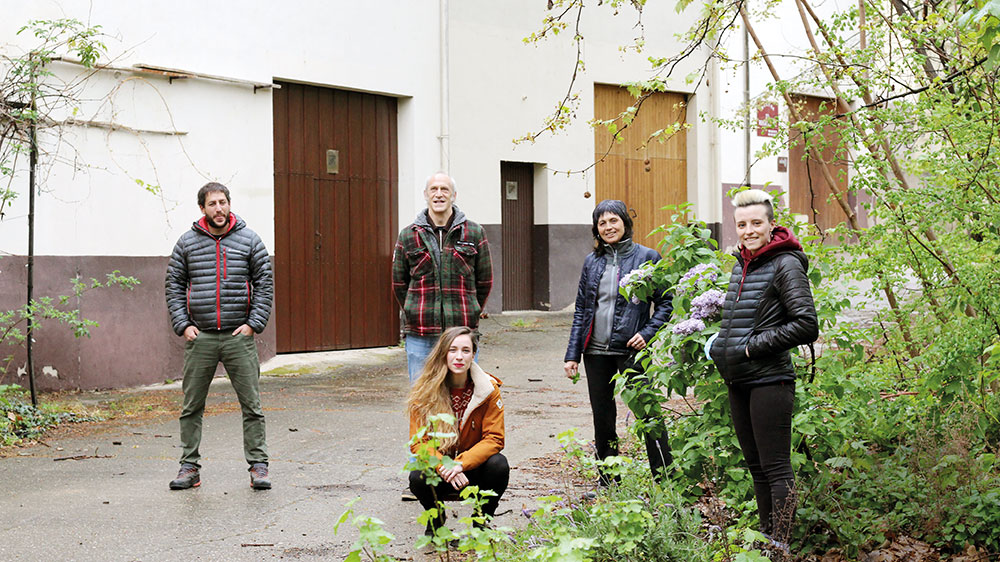
Andoni Landa, born only in Euskera in the Nuarbe district of Azpeitia, studied Spanish at school during his youth; however, he had a dull linguistic awareness until his boss made the “click” that has been repeated frequently in the colloquium, first in Pamplona and, above all, in Rioja Alavesa.
Esti Besa is from Villabuena, were the Basques who were looking for wine in their childhood; at the age of 11 the family moved to Aretxabaleta de Gipuzkoa; with the Basque three “clicks”: first he studied Euskera in the Basque country; then he talked to friends in Basque (and did it); and the last, Lorentxo, his two.
Dani de Ayala was sent to the ikastola by Erdaldunes parents; when he went to university to Vitoria, with so many Basques and Euskalki, to say that he was from Ekora and embarrassed with his Basque, he spent the first three months in silence. “Click.”
The parents of Idoia Marauri, when she was born, were learning Basque and talking to her in Basque. In Primary Education, internal communication in Basque was interrupted. In his youth he studied in Leioa: the first year on the one of Villabuena and the other of Estella, his Basque was “equal”, while in the second he was touched by one of Oñati, he did not understand anything, and one day he threw him: “Please speak more slowly.” And he tried to read his lips. “Click.”
Half of the family of Edurne Azkarate euskaldun and half of the Castilian speaking population studied at the same time, spent their denial phase as Marauri and lived in Euskera only one week a year: in the bertsolaris camps. He involuntarily linked as a child to a thief who responded to what he had understood nothing. Apart from the jokes, he has had many journeys with the Basque Country until he had his last “click”.
However, everyone recognizes that, once in Euskera, the ear was immediately made to the dialects and, furthermore, when the others listen in Spanish, they laugh even more because of the accent they have.
The character of Rioja Alavesa
Esti Besa lived 13 years in Pamplona and taught Euskera; in Rioja Alavesa the struggle for Euskera became more difficult. In Pamplona there were ghettos, each one of them, and in Rioja Alavesa, in the village, more difficult. Dani de Ayala distinguished the character of the peoples of Rioja Alavesa: Unlike most of Álava, they are large enough not to need one of the other, and then the crews are born by municipalities and the relations with the neighboring villages are scarce, although they have been meeting spaces: Laguardia, Viana, Oyón... For Landa, the attitudes against Euskera have been softened, but there is still a fear of Euskera, at some point in the pharmacy or with Olentzero or in the city hall.
Azkarate has shown how the Blessed Eguna has changed: Maialen Lujanbio launched the proclamation only in Basque. It wasn't the easiest day: some to sell wine, some to get drunk, some parents to have to bring the cart to their children... People took it very well, the old, excited with Lujanbio, made him a lot of gifts, sang a song in Basque learned in the time of the Republic and said “I didn’t understand anything, but I’ve been very excited!”. In De Ayala's house there are also debates: “Well, but most of us who were in the square have not understood it!” or “Okay, father, he has cast a verse, and cast the verses in Basque, how many times has it been a proclamation in Spanish?” and then “The truth, yes! Then we will need a lot of years to match those who have been in Spanish.”
They agree on the lack of a mass under 40 years of age that has studied in Euskera, beyond teaching, that plans the use of Euskera in their professions
The last wedge has been put by Azkarate: Is there or is there a more modest desire to organize and fight in other places in Rioja Alavesa? From village to village and from generation to generation, but Marauri has mentioned the Earthquake Festival and the gaztetxe of recent years, or the fight against fracking, the student's day, the alternative Korrika. The easiest to unite to organize the parties. Landa and Bes say there is more salsa today than when they came. They all agree on the importance of weaving networks between towns and cities in the Rioja Alavesa.
Learn Basque yesterday and today
The latter two have recalled that there was a time when the word “enjoyed” and today we hear “effort”, work, title… the times have changed. Those who have known the Basque language in the ikastola have not jumped to the tongue with desire, have studied in the ikastola but have not used it. As Azkarate says, the previous generation related Euskera to rebellion, but it has come to them by a professor who demanded the discipline of Euskera, who has made tokens, but little culture, and Euskera yes, but to that learning we have to add a “for what”. Remember the books read in Spanish at ikastola, but in Basque? “In Euskera short, light, simple, and then it is so short, so light and simple, you are not interested, why do I know One hundred guns per band and not Mendi gora haritza?” he reflected. There are many teacher changes, some fall short in the “exile”, De Ayala has, however, good moments of Euskera in the brain.
Marauri has compared it to mathematics. “It is often asked what mathematics is for and we have to answer it, we have to introduce the Basque language in a transversal way, as we try to introduce the visualization of women indirectly, not only with a book of Euskera and literature”. Landa has set the example of a 60-year-old Basque novel: “When I studied Euskera, the professor was handsome, we fell in love with the Basque language and with him: music, culture... but today’s Euskera teachers are mere caabrons, suspending the students.” You have to look for that “click”: history, culture, music, bertsolarism, university...
Marauri “clicked” to speak Basque with two friends on the DBH 2, today they fill half; then he chose Leioa instead of Logroño for the university, among other things, to make a second “click”. With the last reading he made the last "klika": The news at the beginning was very difficult, but once you got used to it, it managed very well. Lately he has clicked with the literature in the group of readers of Rioja Alavesa: “You also have to learn to read, there’s another ‘click’ there.” Landak: “In Azpeitia oral use will be 90%, but not reading, eh! There's Berria, I don't know how many of you will play, and a book in Basque... Bueeeno!”.
Difficulty breaking dynamics
Changing language habits in your country is not easy when what is in front of you is your uncle, your husband and your wife or always known. In addition, a municipal employee, for example, if he does not know Euskera and does so in Euskera, could offend: “He knows I don’t know, why does he come to me in Basque?” Marauri says that in the gaztetxe he tried to speak in Basque with the new relations, to begin the linguistic habit in Basque. But, for example: go to the neighboring locality, ask for something in Spanish in the pharmacy, turn around the medicine chest and see the Euskararen Aldia veneer in Rioja Alavesa #gertatu atzenarida. They agree that it is necessary to plan that the population under 40 years of age who has studied in Euskera, beyond teaching, work in Euskera in their professions.
Andoni Landa and Esti Bes remember that in their day the word “enjoyed” and that today we hear “effort”, work, title... Times have changed
Little by little, the situation has changed, but after many years to put the technicians of the Basque Country and Equality in the Group, even though once there are problems, they “have to be on top” to always take out the posters in bilingual or to program the culture in Basque. According to Andoni Landa, “the administration should also impose a little: when the bans of not smoking came, for example, society did not see itself claiming that, then banning it, and, it is, bring monitors, music groups, theatre in Basque”.
On the other hand, many young people move to study and then some crews get rid of. According to Azkarate, whoever wants to live in Euskera, with his mea culpability, it may be more attractive to leave the town.
Periphery
“La de Rioja Alavesa y en Euskera!”, “In Euskal Herria we are, in the south, on the border, but in Euskal Herria”, “yes, that of Oiondar and in Euskera, and I also read the press in Euskera”, “Yes, that of Oiondarra, but am Your mother or your father, or I.”
They still feel outside the eyes of many Basques, despised to add up. Azcarat: “You defend your dialect, I find it very good, but my struggle is not that, and I like you to listen, because I don’t have the anchor of the dialect, I stick with the words I like, I can hold one from the north or any, my struggle is the eclectic Basque. I find some of the Basque identities of the peripheries that are developing very interesting: when you accept that you cannot reach that model, because you were not born there, because you are not a genetic Basque, you have to overcome the feeling of second-degree Basque and your vasquity, that identity is to see how our vasquity and yours are to be joined”. De Ayala “The danger of the single story still exists: the Basques have been whale hunters or baserritarras that touch the Txistu or the Trikitixa, because then I will not feel Basque, it is Basque who works in the vineyards and who touches the Gaita”. Fields: “At Ttiki-ttaka we have always passed all the initiatives through our filter.” Arms: “The media in the Basque world rarely give news about us, much more in El Correo, but for the worse.” Alea, from Álava, is also seen with one eye by the gesture and with the other by the raised eyebrow.
Finally, a request to the Basque world: “Please, when you come here, don’t do it in Spanish.”
Nafarroa Beherean, Aiherrako 'Beltzegitea' etxean kokatuko da Eguzkilore haurtzain-etxe berria. Euskara, natura eta motrizitate librea oinarri harturik, heldu den apirilean hasiko dira zerbitzua eskaintzen.
To be honest, I don't know why I'm writing this. In today’s hostile environment, opinions of this kind are not well received. Perhaps LUZ will not publish this because it does not correspond to the opinions they have published so far (but if they have finally decided to publish... [+]










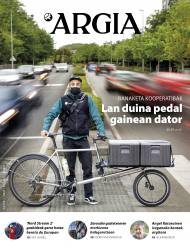


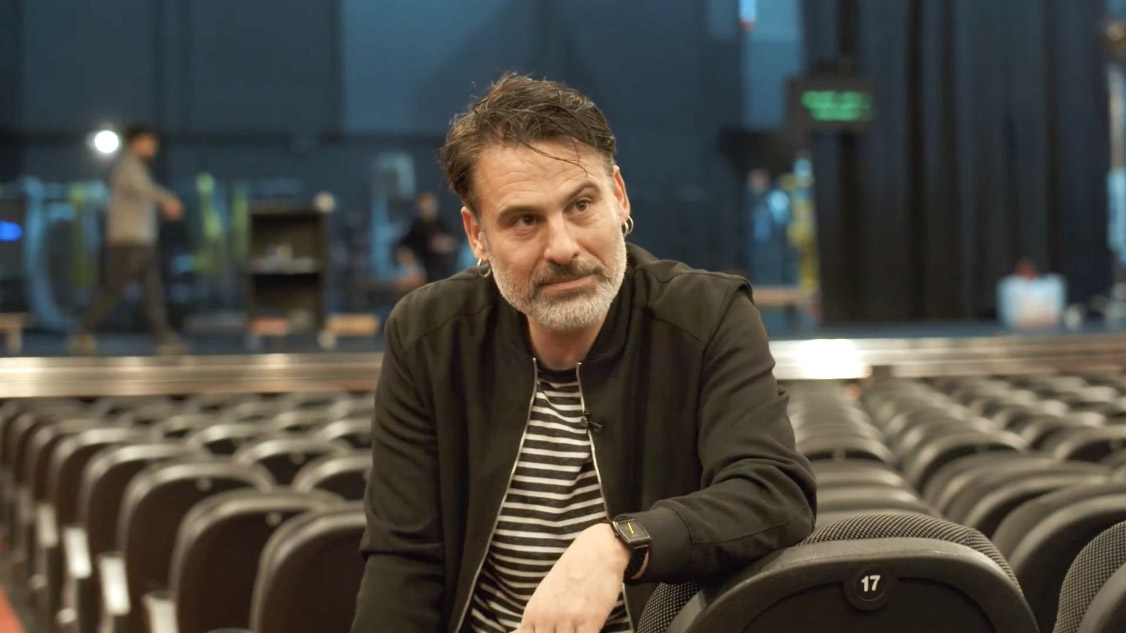

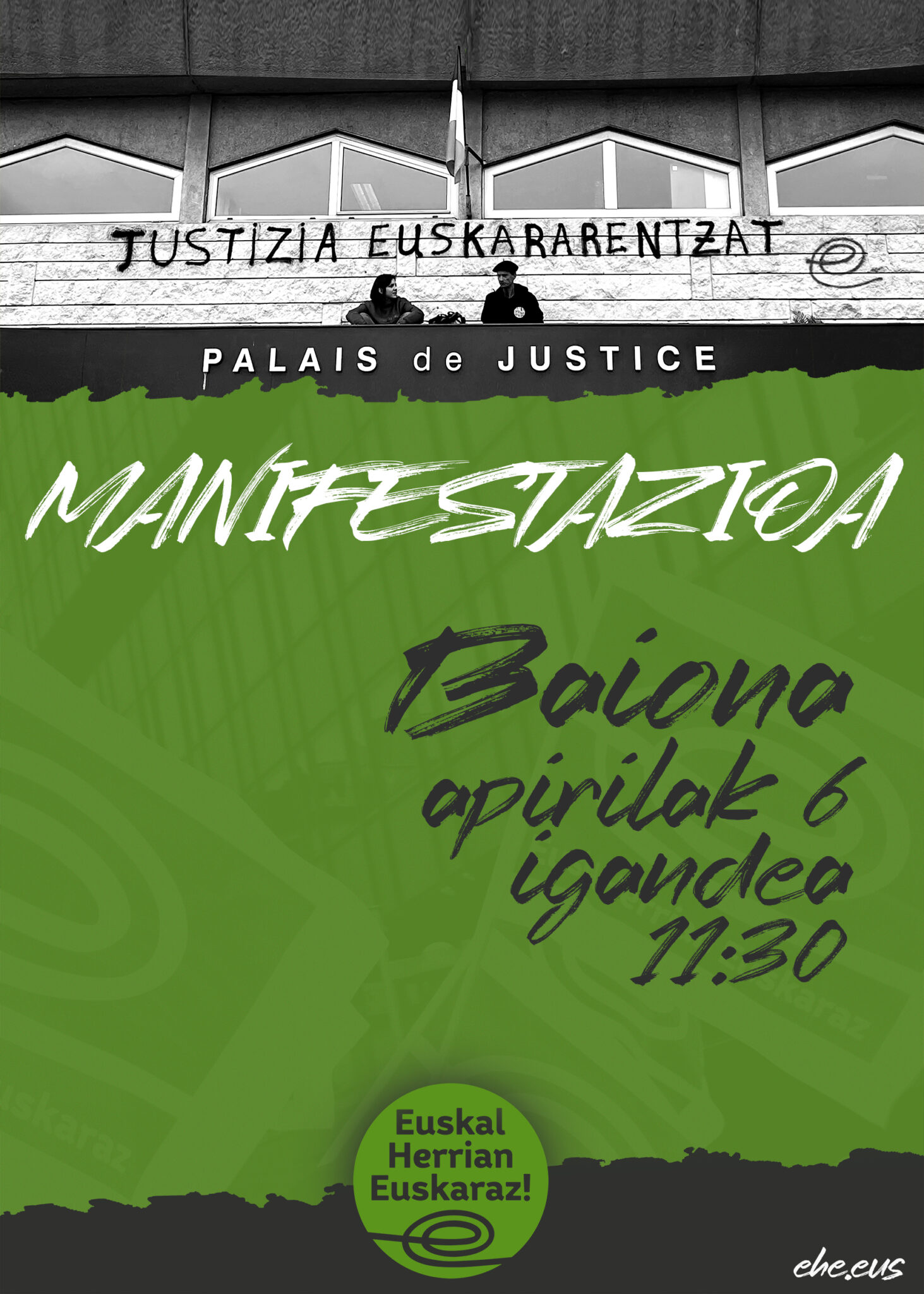

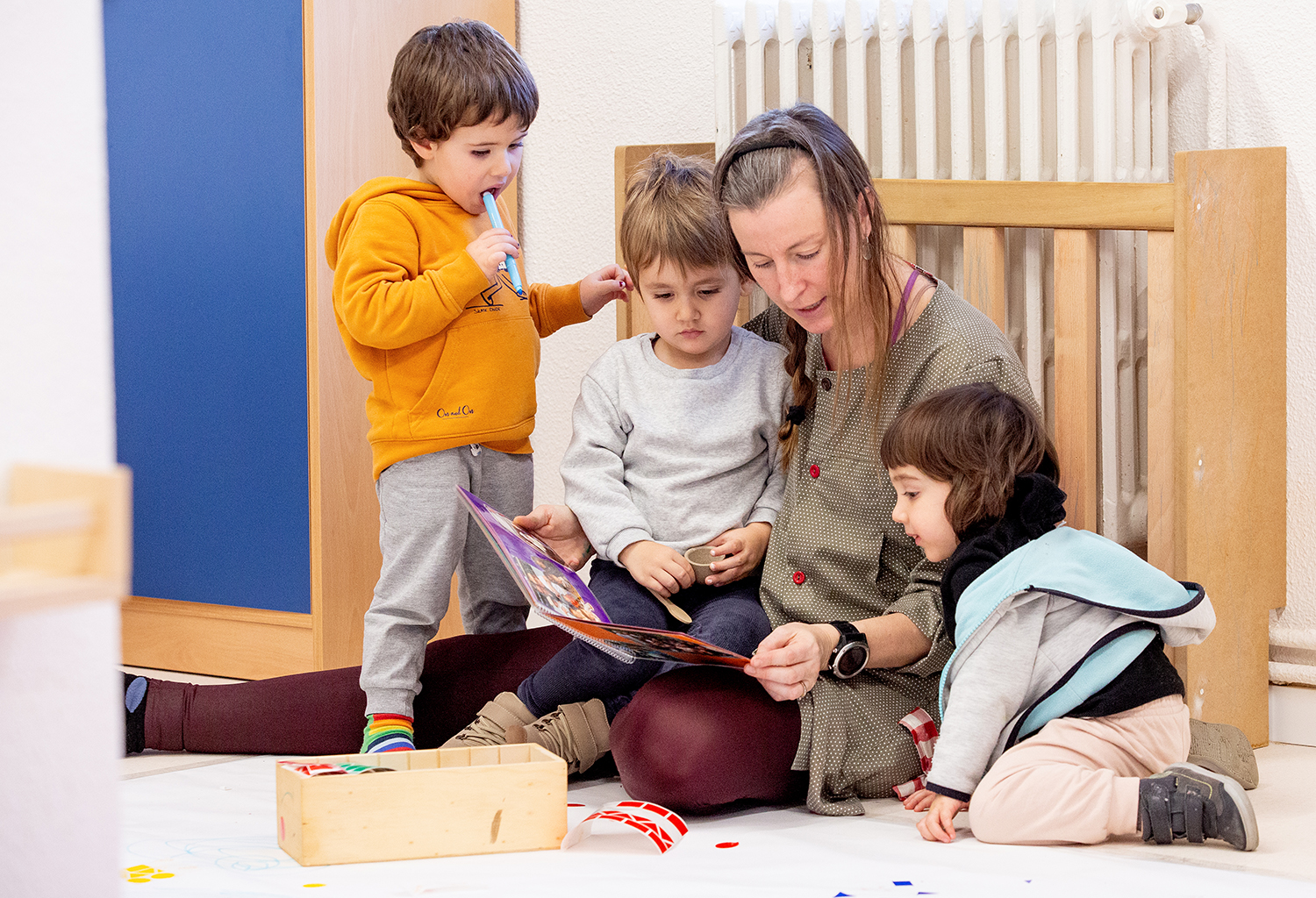
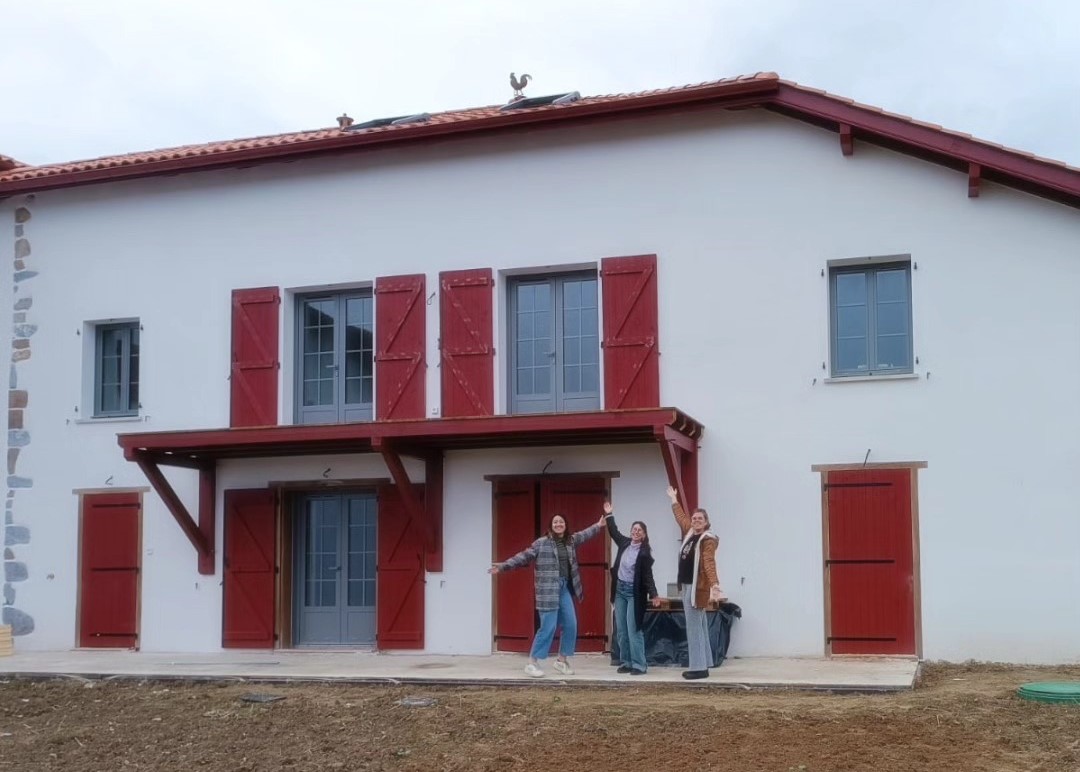

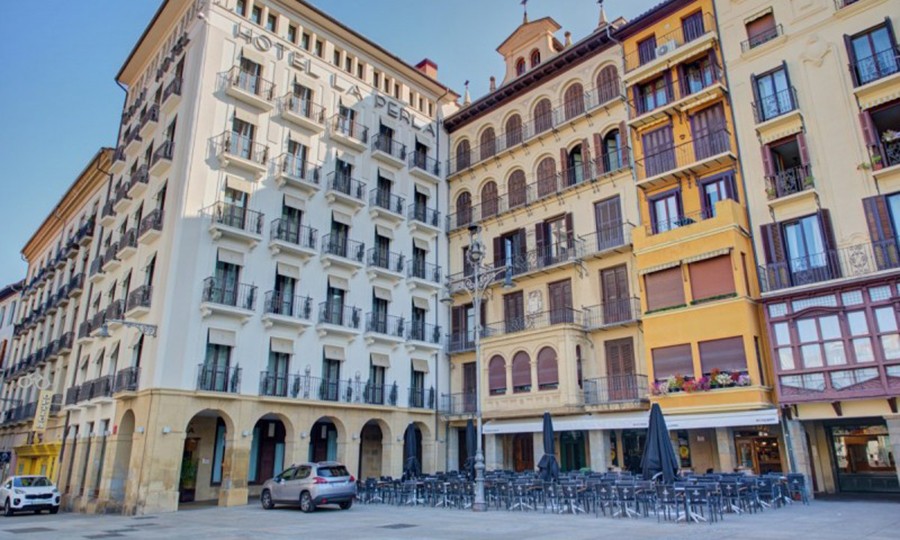

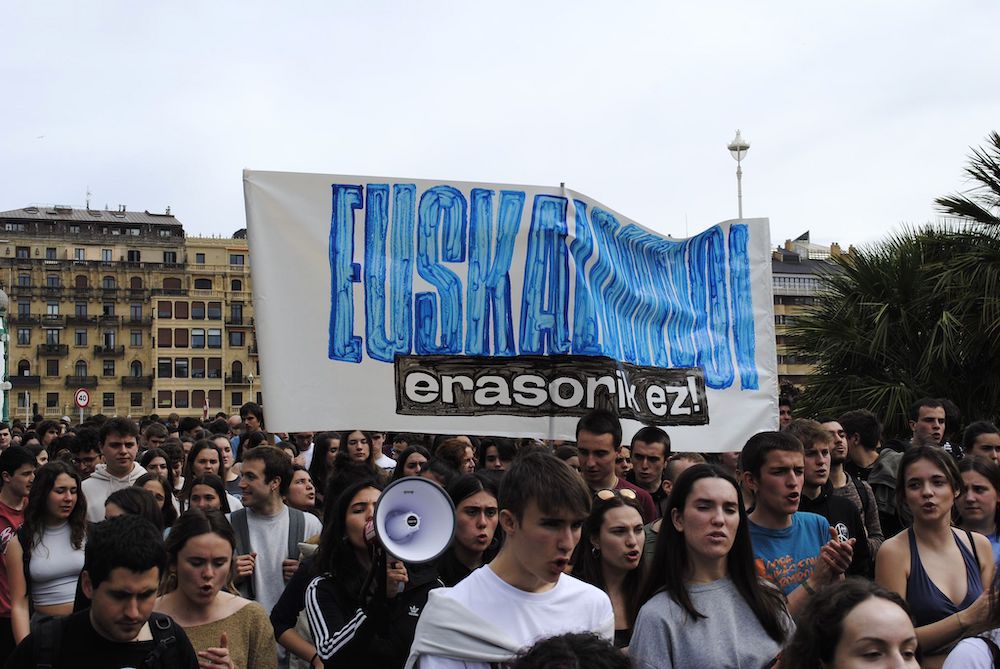
.jpg)

